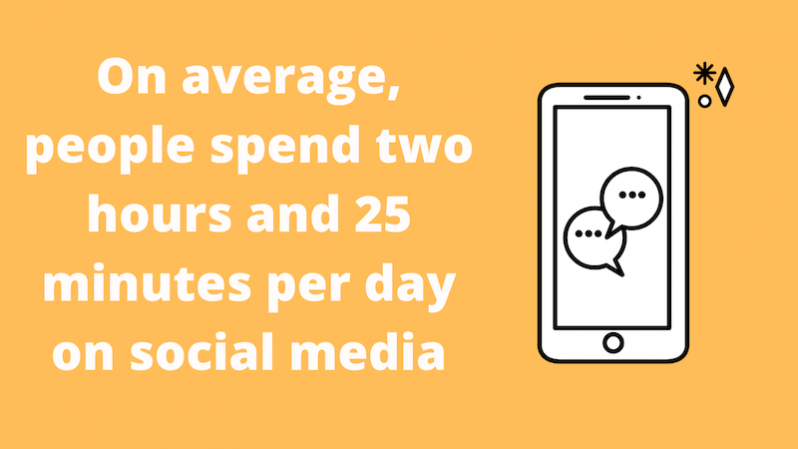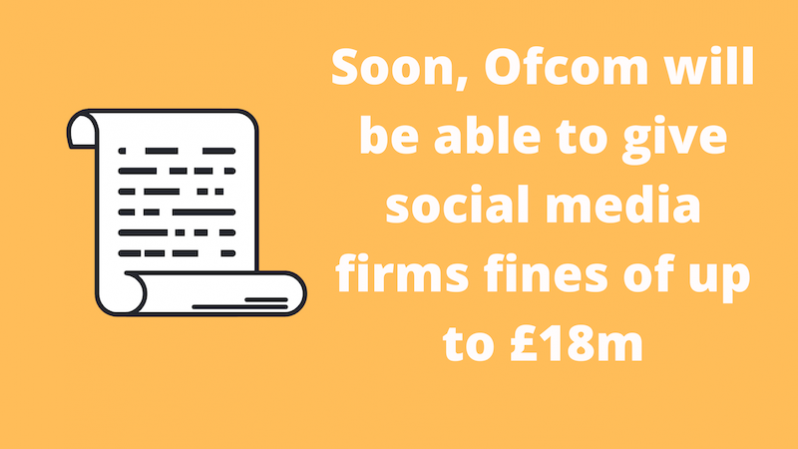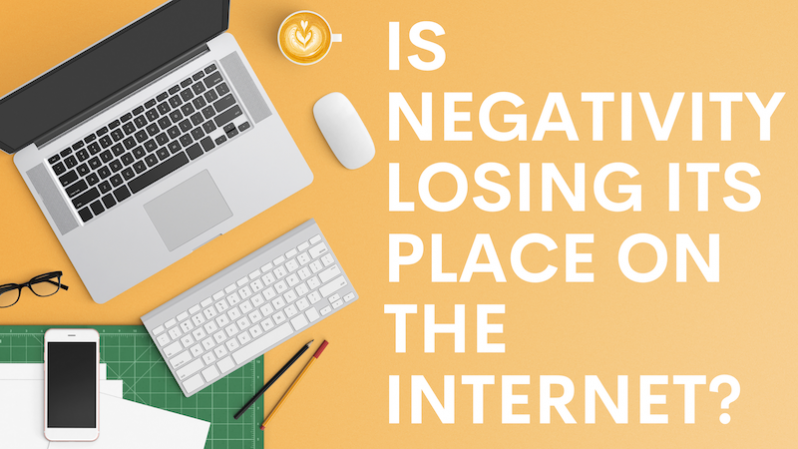The dream for the internet, when it was first introduced, was to support human connection no matter the distance. What the founders may not have expected was the negativity and toxic atmosphere the creation soon descended into. However, it seems that negativity is being driven away by a barrage of accounts that only deliver positive news, movements that shape our world, and strict online laws that can change a person’s life. But, is negativity really losing its place on the internet?
How social media can skew our perceptions of society
Seeing the achievements of others advertised so plainly on every platform we visit no doubt has an effect on how we view ourselves. Whether it’s people venting about their political views or a user splashing their unattainable lifestyle, our ability to separate our personal goals from the comparisons we draw from scrolling through social media.
But is this necessarily negative? Are the influencers we see every day to blame for the mental health effects social media can cause or are we just using it ineffectively?
Using social media and failing to compare ourselves to the people we see online seems to be a tricky talent to obtain. With reports showing that we spend, on average, over two hours on social media (with the number continuing to rise), it seems like this trait will soon be more important than ever.

The negativity bias
Discussion of the negativity bias is vital when talking about the impact of social media on our day-to-day lives. “Doomscrolling” is a term coined from our tendency to continue scrolling through news reports, posts or pictures even though we know it is upsetting and negatively impacting us.
Rather than looking away though, our curious nature leads us to conduct further research into the topic which, in turn, feeds into our negativity bias.
What is a negativity bias?
The negativity bias is the train of thought that we naturally focus on the negative and remember these incidences more than anything positive that happens to us. Talking in terms of social media, we’re quick to seek out the negative news rather than surround our online experience with feel-good accounts and voices of positivity.
This concept has an origin in science, with psychologists finding that there is an almond-shaped brain structure that is often referred to as an “alarm bell”. This structure makes use of two-thirds of the neurons to look for bad news. The alarm is sounded and this information is stored in our memories.
How to overcome your negativity bias
Despite our evolution, there are ways we can overcome our negativity bias. Instead of falling to the depths of the usual self-deprecation and insecurity, we can train ourselves to have a different reaction to posts we see on the internet.
-
Learn to recognise a negative attitude – By learning to spot when you have negative thoughts after using social media, you’re placing yourself in an excellent position to do something about it.
-
Replace the negative thoughts – If you’ve picked up on a negative thought, change the narrative. Rather than simply thinking “my life isn’t as good as theirs”, notice yet appreciate the differences. Pick out the good aspects of your life.
-
Celebrate yourself – One huge step to overcoming your negativity bias is celebrating yourself. Don’t be afraid to acknowledge your victories, no matter how small they are. Cultivate a caring environment for yourself, the same as you would expect from a friend.
Stricter online laws
The prevalence of online bullying throughout every social media platform has become so great that it has ushered in a new age of accountability. Before, people could hide behind an anonymous username and account, using this as a shield to make negative comments to celebrities or their peers.
Now, with stricter regulations in place that include fines of up to 10% of their turnover or the blocking of their sites for firms that fail to protect their users. The government believes that they will be able to take a step towards eradicating online bullying by holding the platforms accountable and pushing them to actually enforce their own terms and conditions.

The rise of positivity accounts
In a bid to offset the negativity on the internet, positivity accounts have been seen to rapidly rise in prevalence and popularity. These can range from Twitter users that only post good news stories to Instagram accounts that share mindfulness tips. In fact, the hashtag '#positivity' on TikTok has over 6.9 billion views across numerous videos.
Movements that started online have taken to the streets to blend the online and offline world in the name of good. #MeToo and the body positivity movement all have clear roots in social media as the platforms were positively utilised to spread the message and empower people to share their own stories.
Tips for a healthy social media experience
Taking steps to work against our negativity bias as well as enjoying the effects of stricter online laws to protect us will all help to improve our social media experience. However, there are still further steps we can take to make sure we’re scrolling healthily.
-
See online achievements as inspiration rather than comparison
Starting with perhaps the most difficult one, we need to train ourselves to see the accompaniments of others as a source of inspiration rather than comparison. Say you see a post of your high school friend buying their first house whilst you’re still living with your parents. Your first reaction may be to look down on your own lifestyle and be envious of the fact that they have moved onto the next step of their life before you.
However, try to think of this as inspiration. You are close in age and one has been able to find the perfect property for them. Surely this means this exciting time is quickly approaching you, which is something to look forward to.
-
Do a cleanse
A social media cleanse is when you try to stay off all platforms for a couple of days. You can even go as far as deleting the apps off your phone to minimise the temptation. You could spend this time getting back in touch with some of your forgotten hobbies, invest in a book to get you out of a reading slump or catch up with a few friends offline.
This will help to clear your head, focus on the things that are important to you and will break the cycle of constantly checking your social media. You could also encourage friends to do it with you.
-
Seek professional help
If you’re finding the negativity and atmosphere online particularly distressing and have noticed it affecting your mental health, don’t be afraid to seek professional help. There are mental health services that will be able to help if you’re experiencing anxiety, depression and other deep issues as a result of social media. Remember, you don't need to deal with this alone.


